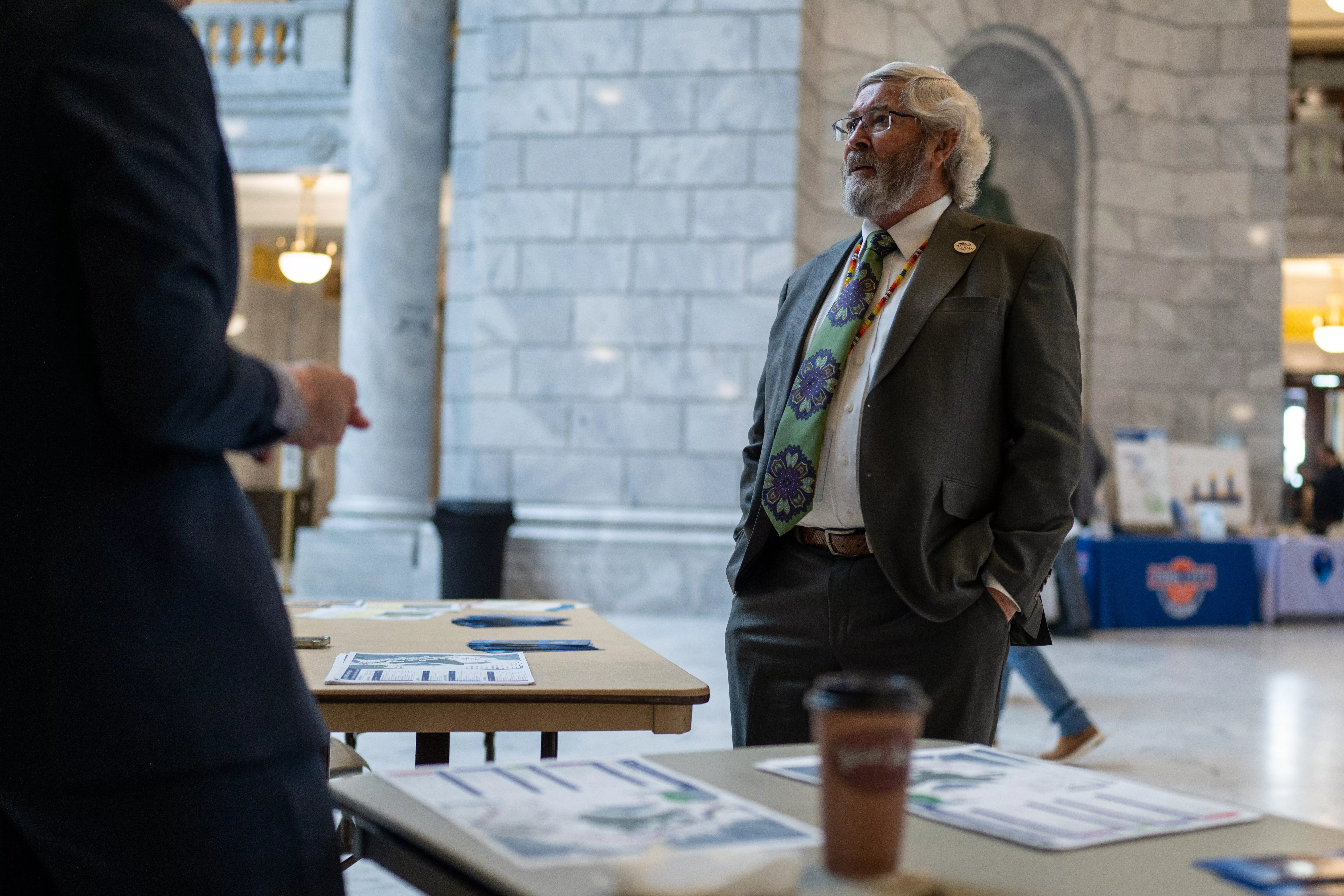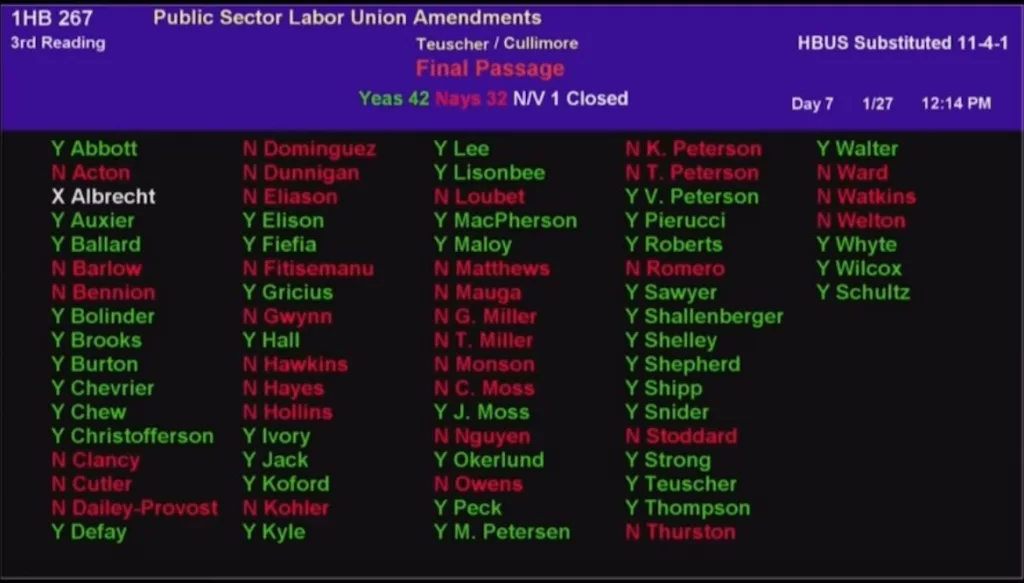
Prior to the start of the 2025 session of the Utah State Legislature, Rep. Jordan Teuscher (R-South Jordan) proposed HB267, a bill that would prohibit public employers from engaging in bargaining with labor organizations representing public employees and prohibit public employers from entering into collective bargaining contracts.
Under the definition of public employees, this would include firefighters, police and teachers.
This move has been viewed as an attempt at payback against the Utah Education Association, which in 2024, sued to block Amendment A from ballots. UEA president Renée Pinkney said of the bill,” Anti-public education lawmakers claim this legislation isn’t targeting the Utah Education Association, but their actions say otherwise. Utah’s students, public educators, and taxpayers deserve better than political retaliation masquerading as policy.”
In a vote held on Monday, Jan. 27, the bill successfully passed the house in a 42-32 vote. Local Representatives Christine Watkins and Logan Monson voted against the bill.
House of Representatives votes on HB267
The sweeping nature of HB267 does not create any substitute for these unions. This is where SB168 comes into the fold. Sponsored by Sen. David Hinkins, the bill would address collective bargaining for public employees through the creation of a labor relations board.
This board would consist of a commissioner, two representatives from public employers and two representatives for public employees. The board would designate “exclusive representatives” or a labor organization that will represent a group of public employees in collective bargaining.
The bill also aims to protect the right of public employees to self-organize,” Public employees are protected from interference, restraint, or coercion in the exercise of the right: (1) to self-organize; (2) to form, join, or assist any labor organization; (3) to bargain collectively through representatives of the public employees’ choosing on questions of: (a) wages; (b) hours; (c) fringe benefits; and (d) other conditions of employment; and (4) to engage in other concerted activities for the purpose of collective bargaining or other mutual aid or protection.”
This bill would also change how dues are collected, requiring written permission from an employee to have their dues taken directly from their pay and delivered to the representative organization.
For public employers engaging in collective bargaining, they would be represented by,” The governor of the state, the governing body of a political subdivision, the commissioner of higher education, or the designated authorized representative shall represent the public employer in collective bargaining with an exclusive representative.”
However, the bill would hit one sector of public employees harder than the others, with police officers being prohibited from entering into a labor strike. “‘Strike’ includes: (i) refusal to report for duty; (ii) willful absence from the police officer’s position; (iii) stoppage of work; or (iv) departure from the full, faithful, or proper performance of duties of employment. (2) For bargaining units that contain a police officer, each collective bargaining agreement shall contain a clause that prohibits police officers from engaging in a strike.”
If passed, SB168 would become law on May 7, 2025.
*Photo Courtesy of the Utah State Senate

